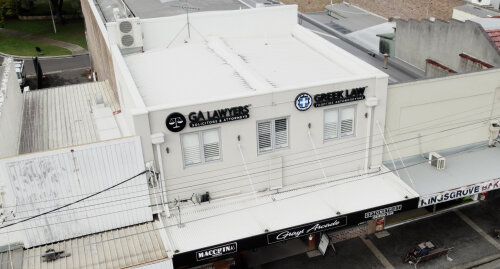Best Defamation Lawyers in Sydney
Share your needs with us, get contacted by law firms.
Free. Takes 2 min.
List of the best lawyers in Sydney, Australia
About Defamation Law in Sydney, Australia:
Defamation law in Sydney, Australia, is designed to protect individuals and businesses from false statements that harm their reputation. Defamation can occur in various forms, including libel (written statements) and slander (spoken statements). To establish defamation, the statement must be proven to be false, published to a third party, and have caused harm to the individual's reputation.
Why You May Need a Lawyer:
If you believe you have been defamed or are facing allegations of defamation, it is advisable to seek legal advice. A lawyer experienced in defamation law can help you understand your rights, assess the strength of your case, and navigate the legal process effectively. They can also assist in negotiations, settlement discussions, or representing you in court if necessary.
Local Laws Overview:
In Sydney, Australia, defamation law is governed by the Defamation Act 2005. The Act outlines the criteria for establishing defamation, defenses available to defendants, and the procedures for filing a defamation claim. It is important to note that defamation cases must be filed within 1 year of the publication of the defamatory statement.
Frequently Asked Questions:
1. What constitutes defamation in Sydney, Australia?
Defamation in Sydney, Australia, occurs when a false statement is published to a third party that harms a person's reputation.
2. Can opinions be considered defamatory?
Opinions are generally protected under defamation law unless they are presented as facts or imply false information.
3. What defenses are available in a defamation case?
Common defenses include truth (substantiation of the statement), honest opinion (fair comment), and qualified privilege (statements made in certain contexts).
4. How do I prove defamation in court?
You must prove that the statement is false, has been published to a third party, and has caused harm to your reputation.
5. What damages can I claim in a defamation case?
Damages in a defamation case can include compensation for reputational harm, emotional distress, and financial losses.
6. Can I demand a retraction of the defamatory statement?
You can request a retraction of the defamatory statement, which may help mitigate damages in some cases.
7. How long do I have to file a defamation claim in Sydney, Australia?
You have 1 year from the publication of the defamatory statement to file a defamation claim.
8. Can corporations sue for defamation in Sydney, Australia?
Corporations can sue for defamation in Sydney, Australia if the defamatory statement harms their reputation and causes financial losses.
9. Is mediation or settlement possible in defamation cases?
Yes, mediation or settlement discussions are common in defamation cases and can help resolve disputes outside of court.
10. How can a lawyer help me in a defamation case?
A lawyer can help you understand your legal rights, assess the strength of your case, negotiate on your behalf, and represent you in court if necessary.
Additional Resources:
For more information on defamation law in Sydney, Australia, you can visit the New South Wales Department of Justice website or consult with the Defamation Law Association of Australia.
Next Steps:
If you believe you have been defamed or are facing defamation allegations, it is advisable to seek legal advice from a qualified defamation lawyer in Sydney, Australia. They can guide you through the legal process, protect your rights, and help you seek appropriate remedies for any harm caused to your reputation.
Lawzana helps you find the best lawyers and law firms in Sydney through a curated and pre-screened list of qualified legal professionals. Our platform offers rankings and detailed profiles of attorneys and law firms, allowing you to compare based on practice areas, including Defamation, experience, and client feedback.
Each profile includes a description of the firm's areas of practice, client reviews, team members and partners, year of establishment, spoken languages, office locations, contact information, social media presence, and any published articles or resources. Most firms on our platform speak English and are experienced in both local and international legal matters.
Get a quote from top-rated law firms in Sydney, Australia — quickly, securely, and without unnecessary hassle.
Disclaimer:
The information provided on this page is for general informational purposes only and does not constitute legal advice. While we strive to ensure the accuracy and relevance of the content, legal information may change over time, and interpretations of the law can vary. You should always consult with a qualified legal professional for advice specific to your situation.
We disclaim all liability for actions taken or not taken based on the content of this page. If you believe any information is incorrect or outdated, please contact us, and we will review and update it where appropriate.

















